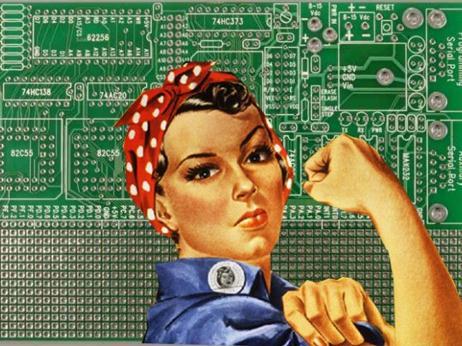According to a recent Comparably survey, one in four women who work in the tech industry have been sexually harassed. These statistics should prove to be alarming, but unfortunately, they are not surprising at all.
Yes, the tide is certainly starting to turn. There is less public tolerance for people in privileged positions sexually harassing women in the workplace, as evidenced by the recent termination of long-time Fox News host, Bill O’Reilly. Policies are starting to take shape, and there is more support for women who come forward.
However, there seems to be less oversight when transgressions occur between colleagues. When the power play vs. sexual harassment line is crossed is also becoming less clear. Oftentimes, it can be tricky for both employees and managers of tech companies to identify.
There are a couple of reasons for this. The main one is that tech companies encourage and indeed foster family or frat-like atmospheres in their work environments. It’s a work hard, play hard mentality, with colleagues often fraternizing after work. Tech companies encourage strong friendship bonds between co-workers, which can lead to employee satisfaction and retention.
The downside is that because the office environment is less formal, it is starting to look more like a university campus with its long history of sexual harassment of women, including major tech companies like Uber, Magic Leap, and most recently UploadVR.
Need for more women executives
No one should experience this type of behavior in the workplace. That is why these issues need to be addressed at the top. There is an inherent need for more women in executive roles.
By having more women join the workforce at higher levels, there is someone to go to other than just HR if an employee faces an uncomfortable situation or issue. Women in these power positions can affect cultural change in the environment of a company, whether it be the language that is used or the way meetings are conducted.
What to do when it happens to you
For those women in tech (and beyond) who are experiencing issues like sexual harassment in the workplace, it is best to first find somebody who would be able to support and guide her when facing a problem; this does not necessarily have to be another woman. If she is not able to do so for whatever reason, then the decision is figuring out the toxicity of the situation and environment, and if necessary, leave.
Oftentimes it is women in less powerful positions who are targeted, or women who are ambitious and keen on working their way up through the ranks, so it can feel like a lot is at stake. Every situation is different, and it’s a tremendously personal choice.
 Deborah Kilpatrick is the co-founder and VP of Marketing at SourceKnowledge, a leading performance based advertising platform, where she oversees all aspects of the SourceKnowledge corporate brand and communications strategy. Through her leadership, SourceKnowledge has grown to a team of more than 30 employees, located in Vancouver and Montreal.
Deborah Kilpatrick is the co-founder and VP of Marketing at SourceKnowledge, a leading performance based advertising platform, where she oversees all aspects of the SourceKnowledge corporate brand and communications strategy. Through her leadership, SourceKnowledge has grown to a team of more than 30 employees, located in Vancouver and Montreal.
Having worked in digital advertising for more than 17 years, Kilpatrick is an ardent supporter of the open web, and co-founded SourceKnowledge after running her own successful SEO and SEM consulting business, dSide Marketing, for three years.
Prior to independently running her own company, Kilpatrick worked at one of the first search engines on the web, Mamma.com. As the Product Marketing Manager, she managed the company’s brand and product strategy as well as product marketing for its paid search advertiser program.
Deborah graduated from Concordia University with a Bachelor of Commerce in Marketing. She currently resides in Montreal with her family.


